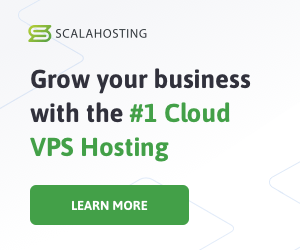As businesses grow and evolve, so do their technology needs. One of the most critical needs for any modern business is a reliable and efficient cloud server. However, not all cloud servers are created equal. One option that has gained popularity in recent years is the SSD cloud server.
So, what exactly is an SSD cloud server, and why should your business consider upgrading from a traditional server? In this article, we will explore the top 10 reasons why an SSD cloud server is essential for businesses in today’s fast-paced digital landscape. From faster load times to increased security, scalability, and flexibility, an SSD cloud server can offer significant benefits for businesses of all sizes and industries.
Faster Load Times
Website speed and load times play a crucial role in user experience and search engine rankings. Slow load times can lead to frustrated users and lower search engine rankings, resulting in decreased traffic and revenue for businesses.
An SSD cloud server can significantly improve website performance by providing faster read and write speeds than traditional hard drives. This ultimately leads to faster load times and a better user experience.
Additionally, an SSD cloud server can handle higher levels of traffic without sacrificing speed or performance. This means that businesses can accommodate more users and visitors without experiencing lag or slow load times.
How SSD Performance Affects Load Times
When a user visits a website, the website’s server must retrieve the necessary data to display the page. This data includes images, text, and other content that the user sees on their screen.
With a traditional hard drive, this process can be slow because the drive must physically seek out and retrieve the necessary data. This can result in slower load times and a poor user experience.
However, SSDs use flash memory to store data, allowing for much faster read and write speeds. This means that when a user visits a website hosted on an SSD cloud server, the necessary data can be quickly retrieved and displayed on their screen.
For businesses, this translates into a faster, more responsive website that can handle higher levels of traffic. In turn, this can lead to increased user engagement, higher search engine rankings, and ultimately, more revenue.
Increased Security
One of the most significant benefits of using an SSD cloud server for your business is the increased security that it provides. Cloud servers are known for their security features, which include data protection, secure data transfer, encryption, and SSL certificates. These features help to prevent unauthorized access to your data and shield it from cyber threats.
When you use an SSD cloud server, all of your data is encrypted and transmitted securely, so you can be confident that it is safe from prying eyes. Additionally, most cloud hosting providers offer continuous security monitoring and automatic software updates to help ensure that your data remains secure.
Utilizing cloud hosting also ensures that your data is protected from disasters such as fires, floods, or other natural disasters that could damage a physical server. With an SSD cloud server, you can rest assured that your data is safe and protected even in the event of an unexpected disaster.
“Cloud hosting can offer superior security features compared to traditional hosting methods, helping businesses to protect their sensitive data from unauthorized access and cyber threats.”
Finally, using an SSD cloud server ensures that you have access to regular backups and redundancy options, helping to prevent data loss in case of server downtime. This can be especially important if your business relies heavily on its data, as server downtime could cause significant disruptions to your operations.
Secure Data Transfer
The secure data transfer capabilities of an SSD cloud server are particularly beneficial for businesses that handle sensitive data, such as financial information or personal details. With SSL certificates and encryption options, businesses can ensure that their data is transmitted securely and protected from unauthorized access. This is especially important for businesses that are subject to industry-specific regulations or that handle sensitive client information.
Protection Against Data Breaches and Cyber Attacks
In addition to providing secure data transfer capabilities, an SSD cloud server can also protect businesses from data breaches and cyber attacks. As mentioned earlier, most cloud hosting providers offer continuous security monitoring and automatic software updates to help ensure that your data remains secure. With cloud hosting, businesses can also benefit from advanced security features such as firewalls and intrusion detection systems.
Overall, using an SSD cloud server provides businesses with a high level of security, protecting their data from unauthorized access and cyber threats. Not only do businesses benefit from secure data transfer and encryption options, but they can also take advantage of advanced security features such as firewalls and intrusion detection systems. Additionally, utilizing cloud hosting ensures that your data is protected from physical disasters and server downtime, providing peace of mind to businesses that rely heavily on their data and systems.
Scalability and Flexibility
An SSD cloud server offers businesses the ability to scale resources up or down as needed, providing the flexibility to customize server settings and configurations. This ability to scale up or down ensures that businesses can keep up with changes in demand for their products or services, without having to worry about outgrowing their server capacity.
Additionally, the flexibility to customize server settings and configurations allows businesses to optimize their server for their specific needs, without having to make compromises due to the limitations of traditional hosting options. This not only saves money but also improves the overall efficiency of operations, allowing businesses to focus on what they do best.
Increased Uptime and Reliability
Server downtime can be costly for businesses, resulting in lost revenue and damaged reputations. Fortunately, an SSD cloud server offers improved uptime and reliability compared to traditional hosting options.
Cloud hosting provides automatic failover, redundancy, and backups to ensure that businesses can keep their servers online and their data safe. This means that if one server fails, another server can take over without any interruption to service. This is particularly important for businesses that rely on their servers for mission-critical applications.
In addition, cloud servers are typically hosted in data centers with redundant power and network connections, ensuring that the servers remain online even in the event of a power outage or network disruption.
An SSD cloud server can also provide faster access to data and applications, improving overall performance and reducing the risk of downtime due to slow load times or server overload.
Lower Total Cost of Ownership
One of the biggest advantages of an SSD cloud server is the lower total cost of ownership (TCO) compared to traditional hosting options. With cloud hosting, businesses only pay for the resources they need, making it easier to scale up or down as needed without incurring additional costs.
Furthermore, cloud hosting eliminates the need to invest in expensive hardware and software, as these are typically provided and maintained by the cloud hosting provider. This can result in significant cost savings over time, especially for businesses that would otherwise need to upgrade their hardware frequently to keep up with changing technologies.
Businesses also enjoy greater flexibility and agility with cloud hosting, which can translate into additional cost savings. With the ability to configure and customize their servers as needed, businesses can optimize their operations and reduce the risk of downtime due to hardware or software issues.
Overall, the lower TCO associated with an SSD cloud server makes it a smart choice for businesses looking to maximize their resources and minimize costs while still enjoying the benefits of reliable, high-performance hosting.
Improved Collaboration and Productivity
One of the key benefits of an SSD cloud server is the ability to improve collaboration and productivity among teams. Cloud hosting provides access to powerful collaboration tools that can help businesses work more efficiently and effectively, especially when working remotely.
Cloud collaboration tools enable team members to work on projects together in real-time, share files and data easily, and communicate seamlessly. This can help improve productivity by reducing the time spent on manual tasks and increasing the speed and accuracy of communication and collaboration.
Cloud hosting also makes it easier for businesses to work with remote teams, allowing team members to work from anywhere with an internet connection. This can help improve productivity by providing more flexibility and allowing team members to work at their own pace and on their own schedules.
With an SSD cloud server, businesses can take advantage of these collaboration and productivity benefits, helping them stay ahead of the competition and achieve their goals more efficiently.
Easy Maintenance and Upgrades
One of the key benefits of using an SSD cloud server is the ease of maintenance and upgrades. With traditional hosting options, server maintenance and upgrades can be time-consuming and risky, often requiring significant downtime for businesses. With an SSD cloud server, however, maintenance and upgrades can be done quickly and easily without any downtime.
Automated updates, patches, and upgrades ensure that your server is always up-to-date and running smoothly. This means that businesses can focus on their core operations without worrying about server downtime or the hassle of manually updating servers.
Another advantage of an SSD cloud server is the ability to scale resources up or down as needed. This flexibility allows businesses to customize server settings and configurations to meet their specific needs and requirements, without having to worry about the costs or complexity of traditional hosting options.
Lowering Downtime
With automatic failover, redundancy, and backups, an SSD cloud server guarantees that businesses can keep their servers online and their data safe. This means that businesses can enjoy higher uptime and greater reliability, which are crucial factors in maintaining customer satisfaction and loyalty.
In summary, an SSD cloud server provides businesses with easy maintenance and upgrades, which saves time and money on server management. Additionally, the flexibility and scalability of cloud infrastructure and the increased uptime and reliability guarantee that businesses can operate smoothly and efficiently.
FAQs
Here are some frequently asked questions about SSD cloud servers:
What is an SSD cloud server?
An SSD cloud server is a type of hosting service that uses solid-state drives (SSDs) to store data and resources in the cloud. Cloud hosting allows businesses to access scalable and flexible resources on-demand, without the need for physical hardware.
What are the benefits of using an SSD cloud server?
Using an SSD cloud server can provide many benefits, including faster load times, increased security, scalability and flexibility, improved uptime and reliability, lower total cost of ownership, improved collaboration and productivity, and easy maintenance and upgrades.
How does an SSD cloud server improve website speed?
An SSD cloud server improves website speed by reducing the load times of websites and applications. This is because SSDs can read and write data much faster than traditional hard disk drives (HDDs), enabling faster access to resources and data.
Is cloud hosting secure?
Yes, cloud hosting can be secure. Cloud hosting providers typically offer many security features, including data encryption, SSL certificates, and secure data transfer protocols. Additionally, cloud hosting can protect businesses from data breaches and cyber attacks by providing automatic backups, failover, and redundancy.
How can an SSD cloud server improve collaboration and productivity?
An SSD cloud server can improve collaboration and productivity by enabling remote work and providing access to cloud collaboration tools. This allows teams to work together more efficiently and effectively, regardless of their location or time zone.
What are the maintenance and upgrade requirements for an SSD cloud server?
An SSD cloud server requires minimal maintenance and upgrades, as many cloud hosting providers offer automated updates, patches, and upgrades. This can help businesses avoid downtime and ensure that their servers are always up-to-date.
Is an SSD cloud server more expensive than traditional hosting?
While an SSD cloud server may have a higher upfront cost, it can provide significant cost savings in the long run due to its lower total cost of ownership and the ability to pay only for the resources that are needed. Additionally, with cloud hosting, businesses can scale their resources up or down as needed, allowing them to avoid paying for unused resources.

























